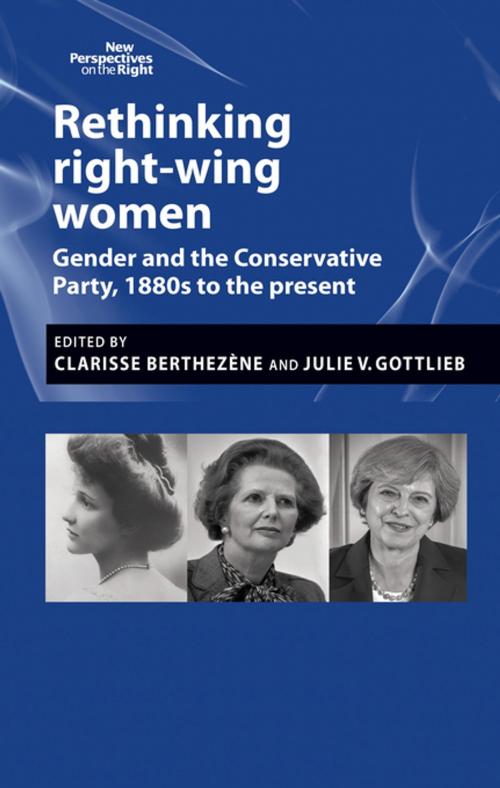Rethinking right-wing women
Gender and the Conservative Party, 1880s to the present
Nonfiction, Social & Cultural Studies, Political Science, International, Foreign Legal Systems| Author: | ISBN: | 9781526125200 | |
| Publisher: | Manchester University Press | Publication: | February 1, 2018 |
| Imprint: | Manchester University Press | Language: | English |
| Author: | |
| ISBN: | 9781526125200 |
| Publisher: | Manchester University Press |
| Publication: | February 1, 2018 |
| Imprint: | Manchester University Press |
| Language: | English |
Rethinking Right-Wing Women explores the institutional structures for and the representations, mobilisation, and the political careers of women in the British Conservative Party since the late 19th century. From the Primrose League (est.1883) to Women2Win (est.2005), the party has exploited women’s political commitment and their social power from the grass-roots to the heights of the establishment. Yet, although it is the party that extended the equal franchise, had the first woman MP to sit Parliament, and produced the first two women Prime Ministers, the UK Conservative Party has developed political roles for women that jar with feminist and progressive agendas. Conservative women have tended to be more concerned about the fulfilment of women’s duties than the realisation of women’s rights. This book tackles the ambivalences between women’s politicisation and women’s emancipation in the history of Britain’s most electorally successful and hegemonic political party.
Rethinking Right-Wing Women explores the institutional structures for and the representations, mobilisation, and the political careers of women in the British Conservative Party since the late 19th century. From the Primrose League (est.1883) to Women2Win (est.2005), the party has exploited women’s political commitment and their social power from the grass-roots to the heights of the establishment. Yet, although it is the party that extended the equal franchise, had the first woman MP to sit Parliament, and produced the first two women Prime Ministers, the UK Conservative Party has developed political roles for women that jar with feminist and progressive agendas. Conservative women have tended to be more concerned about the fulfilment of women’s duties than the realisation of women’s rights. This book tackles the ambivalences between women’s politicisation and women’s emancipation in the history of Britain’s most electorally successful and hegemonic political party.















